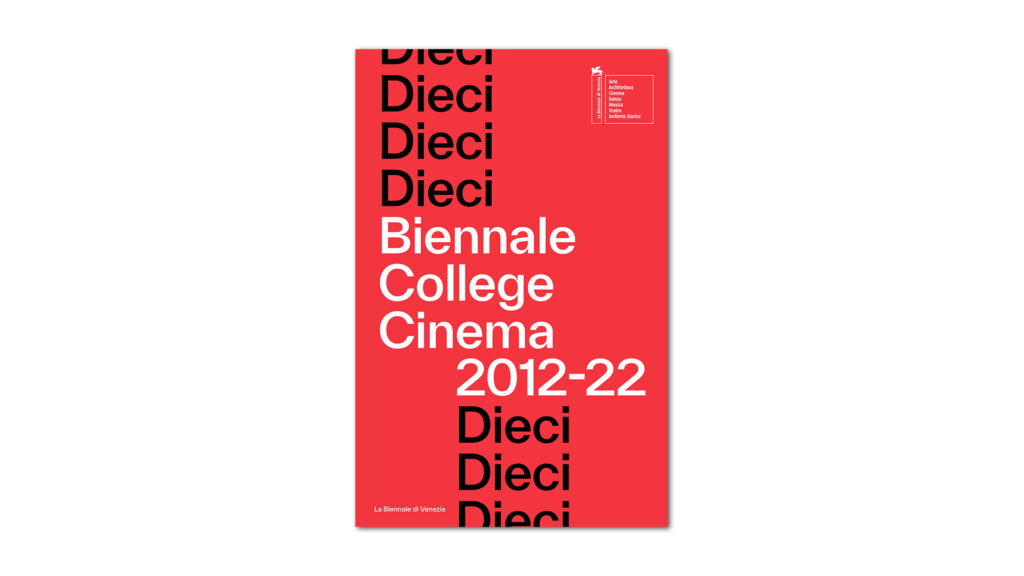DIECI. BIENNALE COLLEGE CINEMA 2012-22
| Weight | N/A |
|---|---|
| Size | 17×24 cm |
| Pages | 271 |
| Fotografie | color |
| Language | ENG, ITA |
€20,00
SHARE THIS PAGE ON:
For the tenth anniversary of the launch of the Biennale College Cinema, La Biennale di Venezia publishes a book that reviews the history of the project inaugurated in 2012 with the goal of enriching the Venice International Film Festival by supporting the participation of emerging filmmakers, both Italian and international, to make micro-budget feature films.
Conceived as an experience to train and develop new talents, this “specialisation workshop” allows young Italian and international directors, accompanied by a producer of their choice, to develop their own project, under the supervision of experts in the field serving as mentors. Every year the projects that complete the entire process are selected to be funded by La Biennale di Venezia, with the possibility of being shown at the following year’s Venice International Film Festival.
The book opens with an introduction by the President of La Biennale di Venezia Roberto Cicutto, followed by a series of essays, including one that reviews the history of the Biennale College Cinema by the Artistic Director of the Cinema Department Alberto Barbera and by Savina Neirotti, and one written by Paolo Baratta, who reconstructs the phases that led to the creation of the Biennale “College”. Other essays, by Glenn Kenny, Stephanie Zacharek, Federica Polidoro, Michel Reilhac and Jane Williams, reflect in various ways upon this innovative project.
The book continues with short interviews with the directors of the films, who answer questions about their experience and the effect of their participation in the Biennale College Cinema on their creative and production processes.
One section is dedicated to detailed descriptions of the films and virtual reality projects produced with grants by the Biennale College Cinema, of the feature films and VR works developed within the College, and finally, the VR projects created from feature films with funding by the Biennale College Cinema. For each work, the description includes the technical characteristics, a synopsis and a series of stills, in black and white or colour, from the films. There is also a portrait and the biography of each director and producer.
The book concludes with data about each of the projects produced or developed within the Biennale College Cinema.
Graphic design and layout by studio Tomo Tomo, Milan.


